Schools in Great Britain Education in

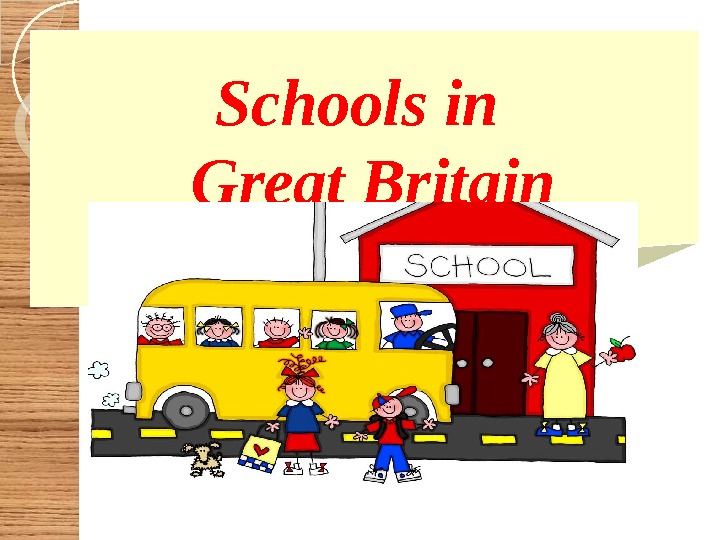
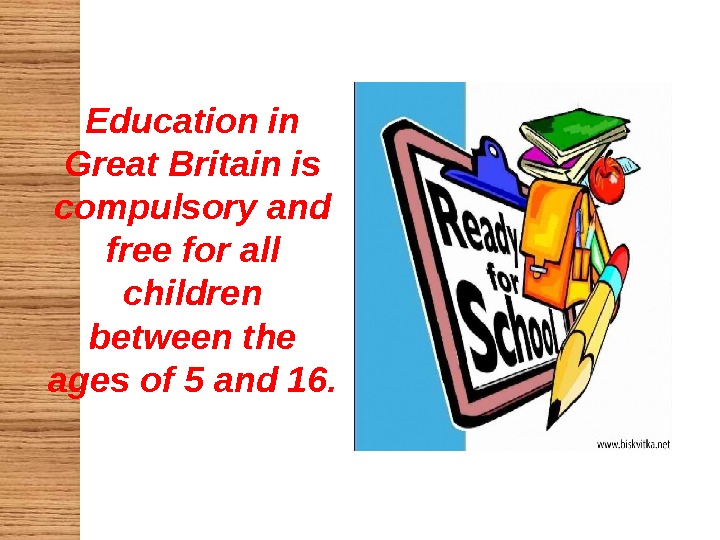

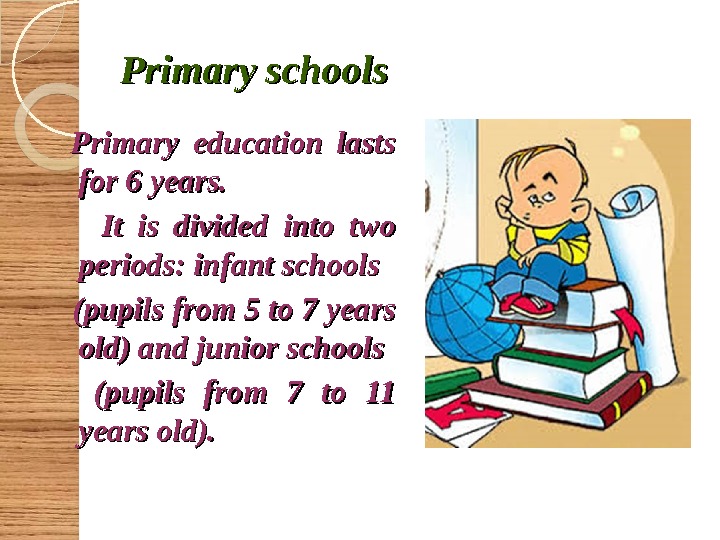

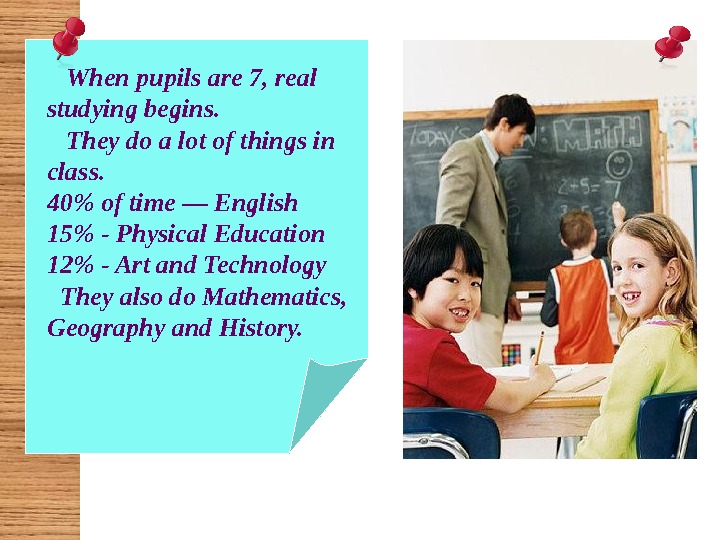
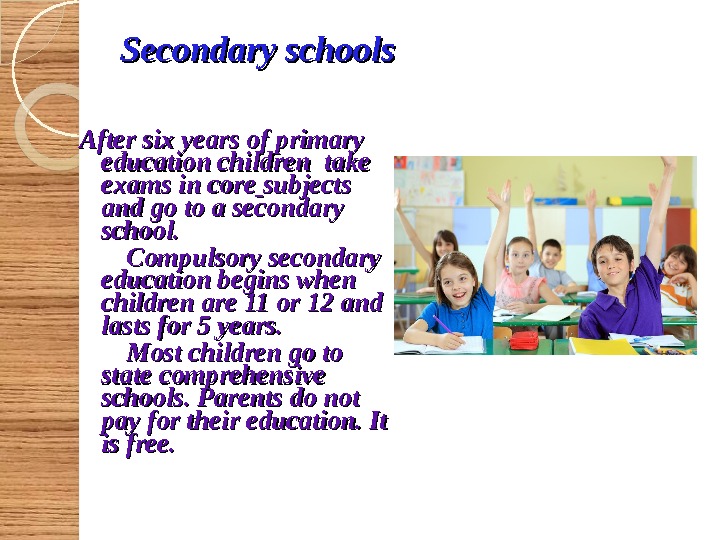
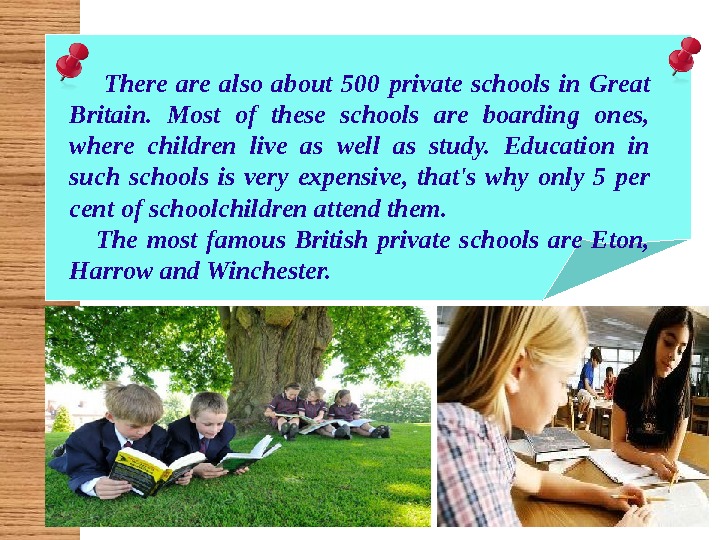
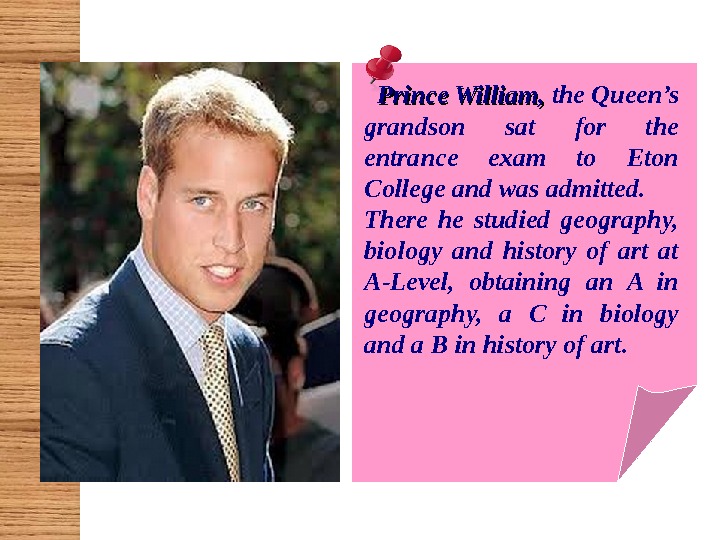
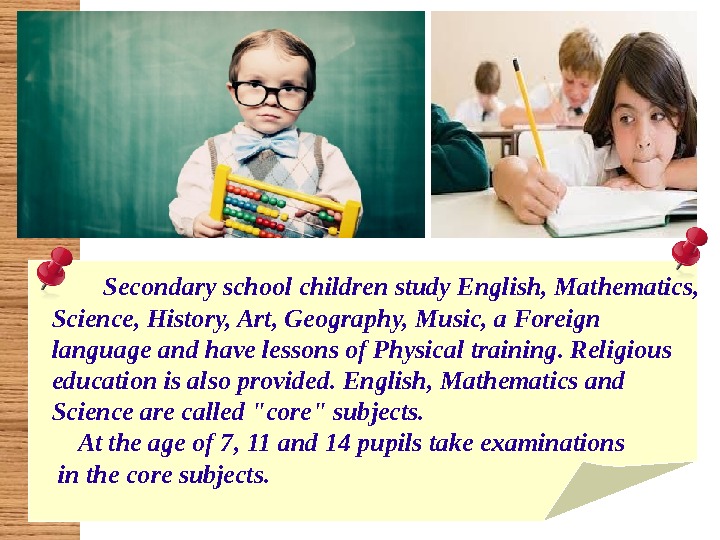
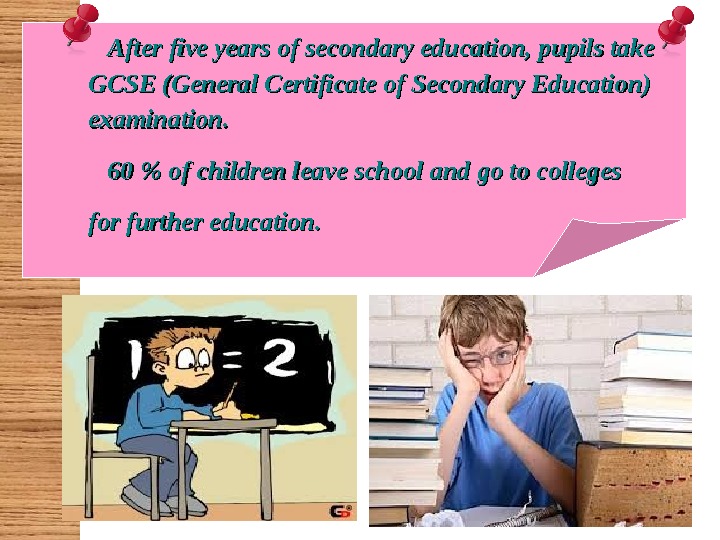
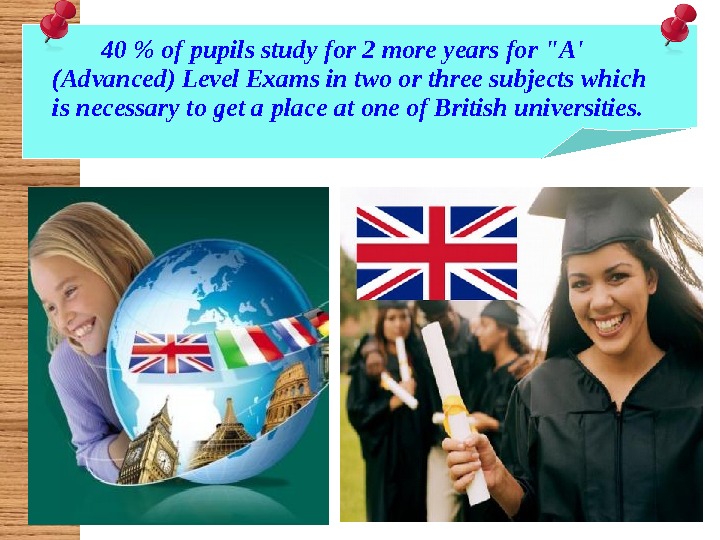
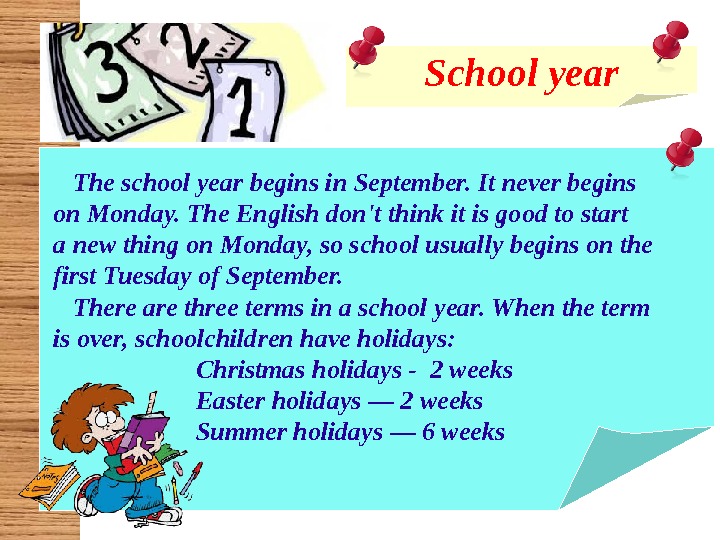
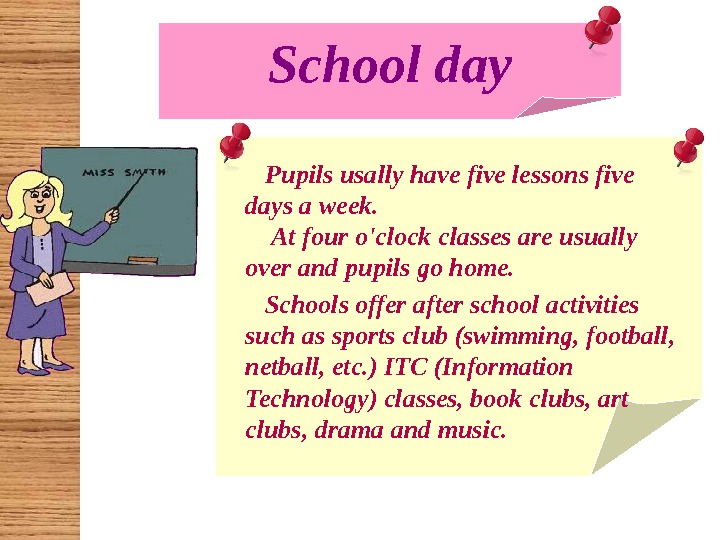
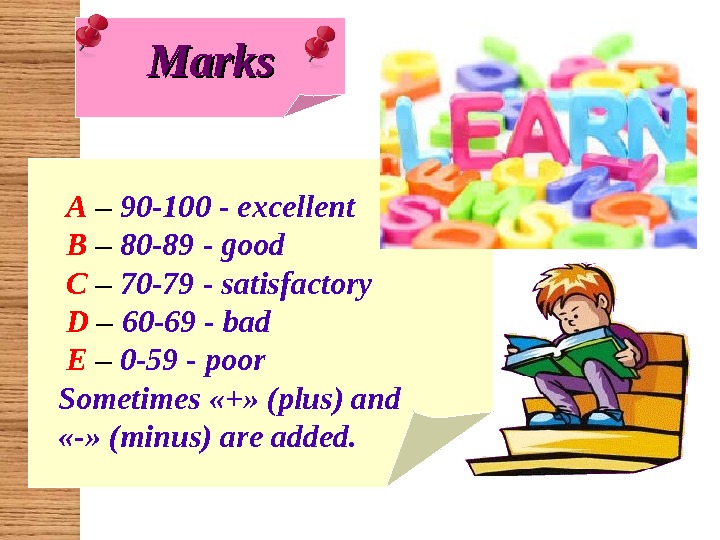
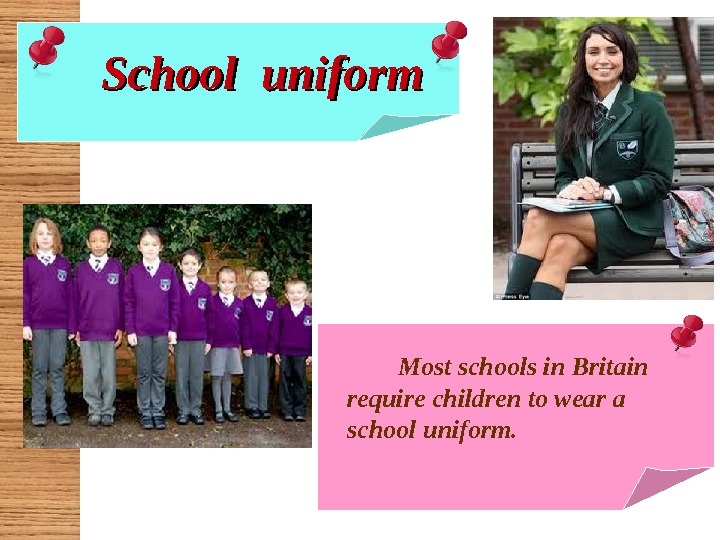
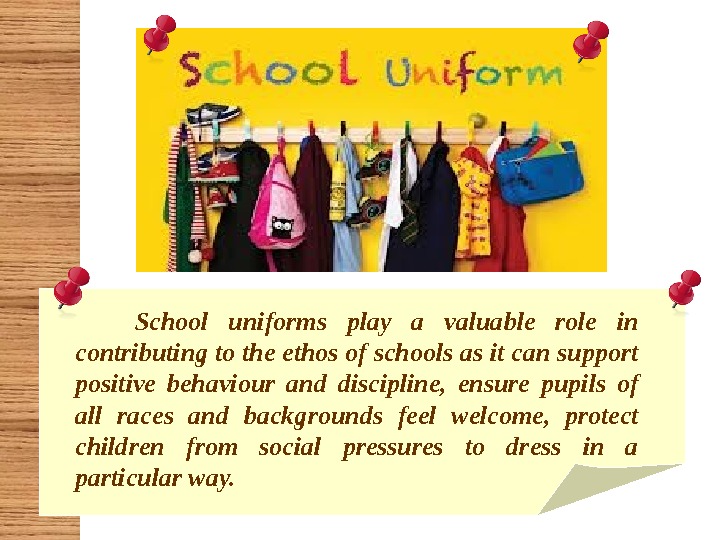
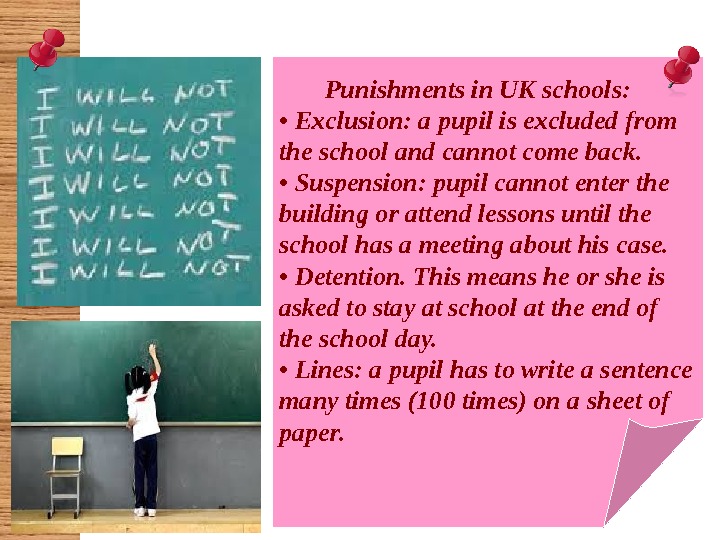
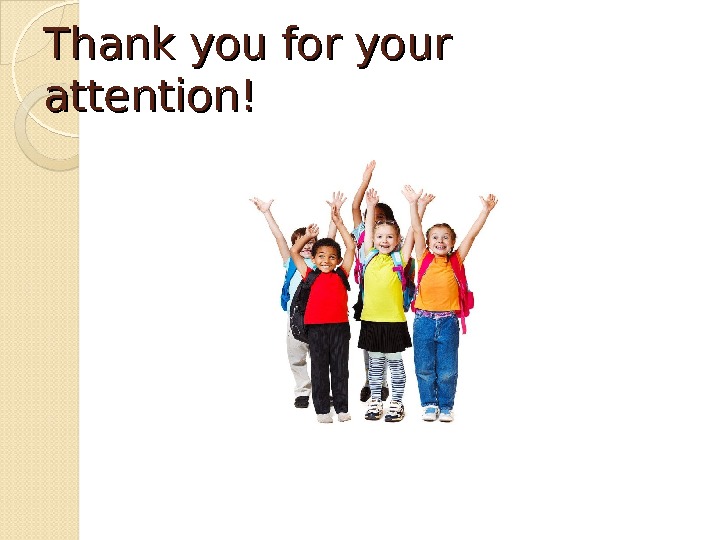
- Размер: 3.1 Mегабайта
- Количество слайдов: 19
Описание презентации Schools in Great Britain Education in по слайдам
 Schools in Great Britain
Schools in Great Britain
 Education in Great Britain is compulsory and free for all children between the ages of 5 and 16.
Education in Great Britain is compulsory and free for all children between the ages of 5 and 16.
 Nursery schools or playgroups Many British children attend a nursery school from the age of 3, but it is not compulsory. In nursery schools they learn some elementary things such as numbers, colours, and letters. Apart from that, babies play, have lunch and sleep there.
Nursery schools or playgroups Many British children attend a nursery school from the age of 3, but it is not compulsory. In nursery schools they learn some elementary things such as numbers, colours, and letters. Apart from that, babies play, have lunch and sleep there.
 Primary schools Primary education lasts for 6 years. It is divided into two periods: infant schools (pupils from 5 to 7 years old) and junior schools (pupils from 7 to 11 years old).
Primary schools Primary education lasts for 6 years. It is divided into two periods: infant schools (pupils from 5 to 7 years old) and junior schools (pupils from 7 to 11 years old).
 In infant schools children don’t have real classes. They mostly play and learn through playing. It is the time when children just get acquainted with the classroom, the blackboard, desks and the teacher.
In infant schools children don’t have real classes. They mostly play and learn through playing. It is the time when children just get acquainted with the classroom, the blackboard, desks and the teacher.
 When pupils are 7, real studying begins. They do a lot of things in class. 40% of time — English 15% — Physical Education 12% — Art and Technology They also do Mathematics, Geography and History.
When pupils are 7, real studying begins. They do a lot of things in class. 40% of time — English 15% — Physical Education 12% — Art and Technology They also do Mathematics, Geography and History.
 Secondary schools After six years of primary education children take exams in core subjects and go to a secondary school. Compulsory secondary education begins when children are 11 or 12 and lasts for 5 years. Most children go to state comprehensive schools. Parents do not pay for their education. It is free.
Secondary schools After six years of primary education children take exams in core subjects and go to a secondary school. Compulsory secondary education begins when children are 11 or 12 and lasts for 5 years. Most children go to state comprehensive schools. Parents do not pay for their education. It is free.
 There also about 500 private schools in Great Britain. Most of these schools are boarding ones, where children live as well as study. Education in such schools is very expensive, that’s why only 5 per cent of schoolchildren attend them. The most famous British private schools are Eton, Harrow and Winchester.
There also about 500 private schools in Great Britain. Most of these schools are boarding ones, where children live as well as study. Education in such schools is very expensive, that’s why only 5 per cent of schoolchildren attend them. The most famous British private schools are Eton, Harrow and Winchester.
 Prince William, the Queen’s grandson sat for the entrance exam to Eton College and was admitted. There he studied geography, biology and history of art at A-Level, obtaining an A in geography, a C in biology and a B in history of art.
Prince William, the Queen’s grandson sat for the entrance exam to Eton College and was admitted. There he studied geography, biology and history of art at A-Level, obtaining an A in geography, a C in biology and a B in history of art.
 Secondary school children study English, Mathematics, Science, History, Art, Geography, Music, a Foreign language and have lessons of Physical training. Religious education is also provided. English, Mathematics and Science are called «core» subjects. At the age of 7, 11 and 14 pupils take examinations in the core subjects.
Secondary school children study English, Mathematics, Science, History, Art, Geography, Music, a Foreign language and have lessons of Physical training. Religious education is also provided. English, Mathematics and Science are called «core» subjects. At the age of 7, 11 and 14 pupils take examinations in the core subjects.
 After five years of secondary education, pupils take GCSE (General Certificate of Secondary Education) examination. 60 % of children leave school and go to colleges for further education.
After five years of secondary education, pupils take GCSE (General Certificate of Secondary Education) examination. 60 % of children leave school and go to colleges for further education.
 40 % of pupils study for 2 more years for «A’ (Advanced) Level Exams in two or three subjects which is necessary to get a place at one of British universities.
40 % of pupils study for 2 more years for «A’ (Advanced) Level Exams in two or three subjects which is necessary to get a place at one of British universities.
 School year The school year begins in September. It never begins on Monday. The English don’t think it is good to start a new thing on Monday, so school usually begins on the first Tuesday of September. There are three terms in a school year. When the term is over, schoolchildren have holidays: Christmas holidays — 2 weeks Easter holidays — 2 weeks Summer holidays — 6 weeks
School year The school year begins in September. It never begins on Monday. The English don’t think it is good to start a new thing on Monday, so school usually begins on the first Tuesday of September. There are three terms in a school year. When the term is over, schoolchildren have holidays: Christmas holidays — 2 weeks Easter holidays — 2 weeks Summer holidays — 6 weeks
 School day Pupils usally have five lessons five days a week. At four o’clock classes are usually over and pupils go home. Schools offer after school activities such as sports club (swimming, football, netball, etc. ) ITC (Information Technology) classes, book clubs, art clubs, drama and music.
School day Pupils usally have five lessons five days a week. At four o’clock classes are usually over and pupils go home. Schools offer after school activities such as sports club (swimming, football, netball, etc. ) ITC (Information Technology) classes, book clubs, art clubs, drama and music.
 Marks A – 90 -100 — excellent B – 80 -89 — good C – 70 -79 — satisfactory D – 60 -69 — bad E – 0 -59 — poor Sometimes «+» (plus) and «-» (minus) are added.
Marks A – 90 -100 — excellent B – 80 -89 — good C – 70 -79 — satisfactory D – 60 -69 — bad E – 0 -59 — poor Sometimes «+» (plus) and «-» (minus) are added.
 Most schools in Britain require children to wear a school uniform. School uniform
Most schools in Britain require children to wear a school uniform. School uniform
 School uniforms play a valuable role in contributing to the ethos of schools as it can support positive behaviour and discipline, ensure pupils of all races and backgrounds feel welcome, protect children from social pressures to dress in a particular way.
School uniforms play a valuable role in contributing to the ethos of schools as it can support positive behaviour and discipline, ensure pupils of all races and backgrounds feel welcome, protect children from social pressures to dress in a particular way.
 Punishments in UK schools: • Exclusion: a pupil is excluded from the school and cannot come back. • Suspension: pupil cannot enter the building or attend lessons until the school has a meeting about his case. • Detention. This means he or she is asked to stay at school at the end of the school day. • Lines: a pupil has to write a sentence many times (100 times) on a sheet of paper.
Punishments in UK schools: • Exclusion: a pupil is excluded from the school and cannot come back. • Suspension: pupil cannot enter the building or attend lessons until the school has a meeting about his case. • Detention. This means he or she is asked to stay at school at the end of the school day. • Lines: a pupil has to write a sentence many times (100 times) on a sheet of paper.
 Thank you for your attention!
Thank you for your attention!

